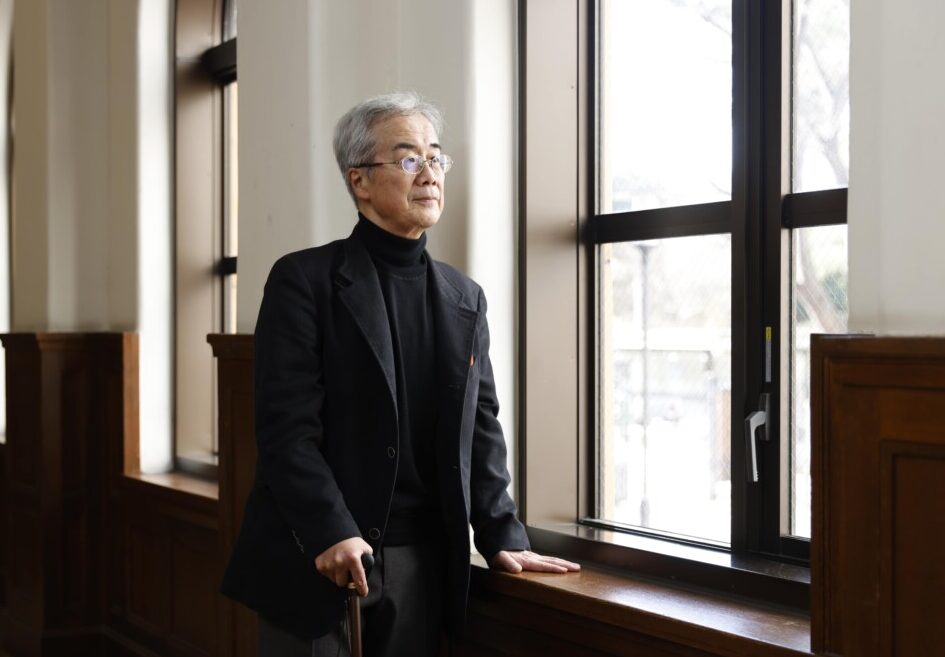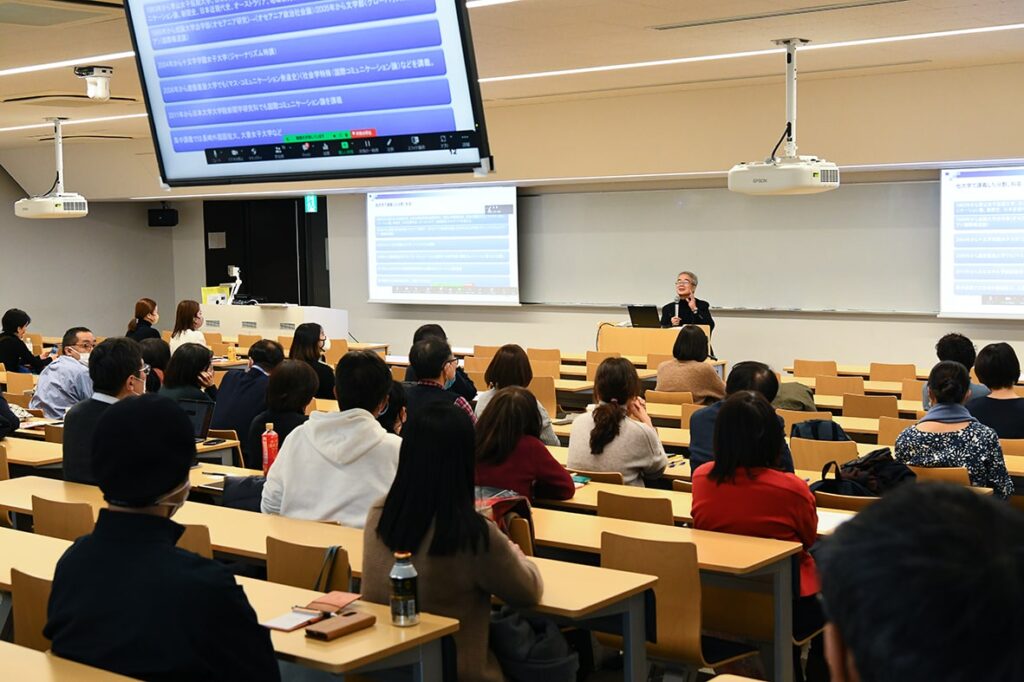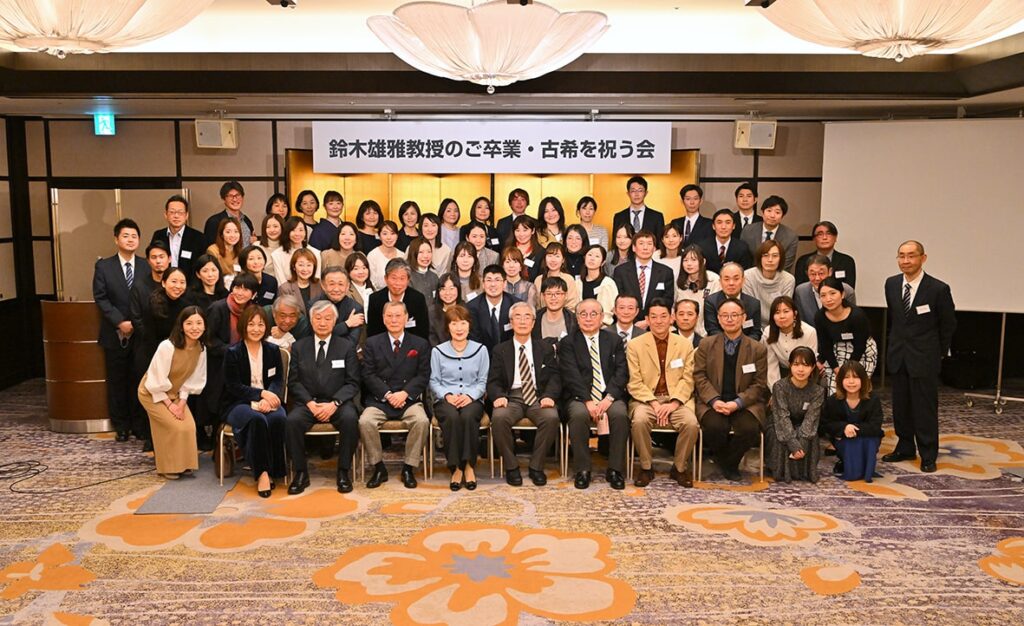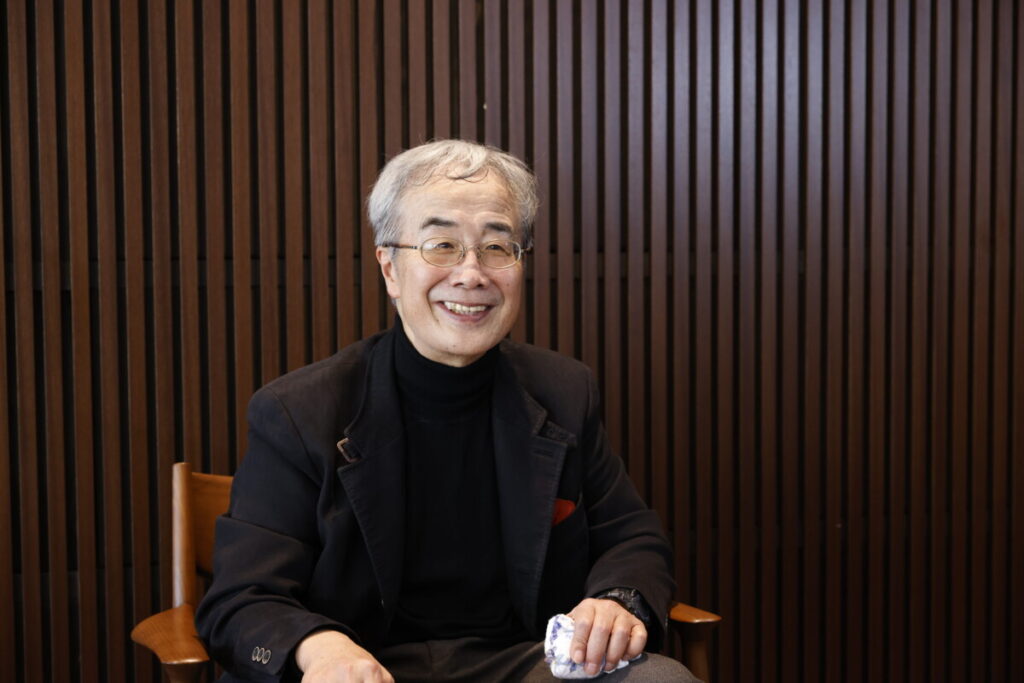Comments by donators
<Part Ⅱ>The half century I spent at Sophia as student, and as faculty
Mr. Yuga Suzuki Professor Emeritus, Sophia University

<Part II / Here is the first part of the article.>
What to be kept in mind in age when anyone can disseminate information— Our life path cannot be erased with eraser
Before taking on the position of lecturer at Sophia University, I engaged in an internship at Kyodo News, which was once an employer of my academic mentor, Prof. Koito. I became part of the news agency in April, just like the new hires, and participated in a three-month training program where we, as trainees, were dispatched to accident and disaster sites to cover the events. We found ourselves in a situation where we asked those who were impacted by a landslide after significant rainfall about their feelings. I couldn’t resist asking, “What is the purpose of pointing a microphone at a victim in pain and ask, ‘How are you feeling?’” Then, a senior employee told me, “All journalists have to do is tell what’s happening now.”
Indeed, the senior employee was right in his statement. Since the essence of journalism lies in reporting what should be reported and informing the public, rather than reporting what you want to. Even so, reaching out to those who had experienced such great loss from the tragedy was challenging for me, and I clearly realized that I was not suited to the on-the-spot journalism. From the outset, I intended to go back to the University following my training, but I would say that this event was one of the driving forces that propelled me to embark on a journey (academism) to pursue journalism and explore what journalists had to communicate to society.
Free speech and expression are rights guaranteed by the Constitution. At the same time, we must take responsibility for the words and sentences we communicate, and those who communicate information should always reflect on how journalism can serve society. That is why I have guided our students in the Department of Journalism to sharpen their sensibility (or reason) with knowledge, culture, and judgment, rather than relying on emotional rhetoric, while accurately perceiving realities through multifaceted thinking and improving their communication skills as members of society.
Today, in the era of diversified media, anyone can easily disseminate information through video and social media. Individuals are both senders and receivers of information, engaging in numerous exchanges of information on a daily basis. However, there has been no change in the gravity of responsibility one should bear when disseminating information to society. Indeed, people have obtained the information dissemination ability, but their communication skills have not necessarily improved in a dramatic way, hurting others’ feelings through the irresponsible use of emotional language. We humans are communicative animals, but when we focus on expressing our emotions, we are frequently and unconsciously influenced by something or other.

-Final Lecture at Sophia University, Building 6, Room 301 – January 21, 2023
Just as education and propaganda are two sides of the same coin, information shared with good intentions may turn out to be fake news. There are countless visible and invisible pitfalls in society. In particular, in the information society, we often find ourselves in a pseudo-environment built around information, preventing us to comprehend the real world. That is, we are living in an era when we must understand how much we believe we know and how much we actually don’t, and individuals, including those working in the media, must consider how, for whom, and for what purpose they disseminate information. To handle information properly and make use of it in communication with others, it is necessary to keep in mind the following six points, which were proposed by Professor Emeritus Takashi Sakamoto of the Tokyo Institute of Technology [Institute of Tokyo Science from October 1, 2024 onward]
・Knowledge: Gain knowledge necessary to understand the nature and content of information;
・Value: Understand the value of the information content;
・Mind: Read others’ minds by refining sensitivity;
・Ethics: Ensure information ethics by respecting privacy and refraining from disseminating false information;
・Skill: Master the skills necessary to make use of computers and application
software; and
・Connections: Develop human networks.
*Excerpted from Takashi Sakamoto, “ON THE LINE” (KDD, December 1996)
There is no distinction of noble and mean in occupations. However, I believe that there certainly is distinction of noble and mean in ways of human life. It is about how to live as a human being. One must always lead a life of dignity, and to cultivate such dignity, it is essential to refine one’s sensitivity (or reason). You may be able to rewrite your resume, but your life path cannot be erased with an eraser.
My teaching experiences at other universities made me realize anew the appeal of Sophia
Apart from Sophia University, I have taught at more than ten other universities (including junior colleges and graduate schools) and have interacted with students and faculty on different campuses. I perceive these experiences as valuable, as they provided me with a view of students who were different from their counterparts at Sophia, and knowing other universities gave me fresh discoveries and profound stimuli to my research. At the same time, I realized the appeal of Sophia anew through these experiences. One of the factors contributing to the appeal is the atmosphere of the University’s Yotsuya Campus. It has an international feel and ambience that have been created naturally by the diverse student body hailing from around the globe. This offers significant advantages for those planning to step into the global arena.
As a specialist in international communication education, I can assure you that there are no specific barriers or limits that prevent you from actively engaging with the global community. Daily immersion in the international ambience at the Yotsuya Campus will enhance your understanding of the world, leading you to realize that diligent study naturally fosters international competitiveness. In addition, witnessing students from the same country discussing with differing perspectives will help you understand the significance of adopting a wider viewpoint and avoiding simplistic classifications of people based on their nationality or origin.
Students are encouraged to accumulate knowledge and learn the way to apply wisdom, or, in other words, profound intelligence. Students may require a span of ten to fifty years to fully benefit from their learning experiences at the Yotsuya Campus. Needless to say, learning continues for as long as we live. Although I gave my last lecture in 2023, I will continue to watch over Sophia’s long tradition of efforts to “develop individuals who can take on active roles in the world,” as well as over my students who will contribute to society by benefiting from the education they received. Once you have embarked on society, you can be sure that someone somewhere is watching you. When a graduate from the Department of Journalism writes an article, it would probably be noticed by current students. If only to motivate alumni, I intend to monitor their achievements.

– Graduation & 70th Birthday Celebration at Keio Plaza Hotel – March 4, 2023
Founded “Yuga Suzuki Department of Journalism Scholarship Fund” for diligent students
In April 2023, I was honored with the title of Professor Emeritus, and later in October, I founded the “Yuga Suzuki Department of Journalism Scholarship Fund” by making a donation. I founded it because I received extensive help from Sophia over the years during the University’s growth phase, and I was also a recipient of a scholarship when I was a student.
I was awarded my first scholarship during the first year of my master’s degree. When my father suddenly passed away, I was granted the scholarship as Special Measures for Sudden Change in Family’s Financial Circumstances, and the grant was a great help to me. I also received a scholarship from the Japan Scholarship Foundation in the second semester of my PhD program, enabling me to focus more on my research endeavors. Without the support of these scholarships, I might not have had such a long engagement with Sophia University. This notion encouraged me to reciprocate the kindness I had received.
My scholarship fund is the second one established in the Department of Journalism, following the “Russell Brines Scholarship,” which was created to pay tribute to a journalist who made a significant contribution in postwar Japan. The first recipients of my scholarship were selected through a departmental process in December 2024. A sophomore among the three recipients mentioned plans to acquire reference books to prepare for the TOEFL. I posed a question to the awardee, “Are you really planning to use the full amount for reference books?” However, the truth is, I don’t mind what it’s spent on. My only hope is that the scholarship could alleviate the hectic lifestyle of students overwhelmed with their academic works. There is nothing would make me happier than hearing a scholarship winner reflect years later and says, “I was so grateful to receive the scholarship at that time.”

*Source: Takashi Sakamoto, “ON THE LINE” (KDD, December 1996)

